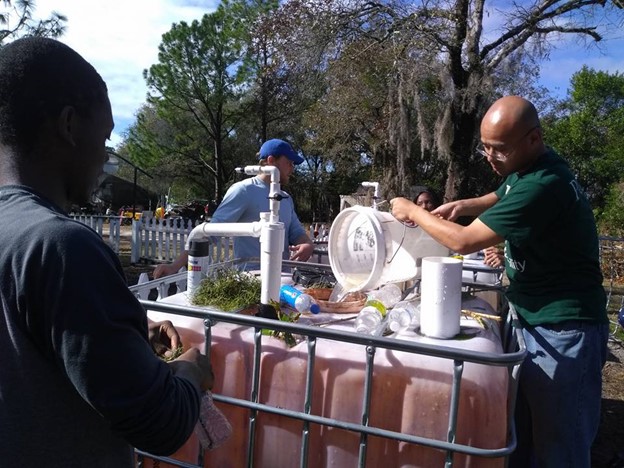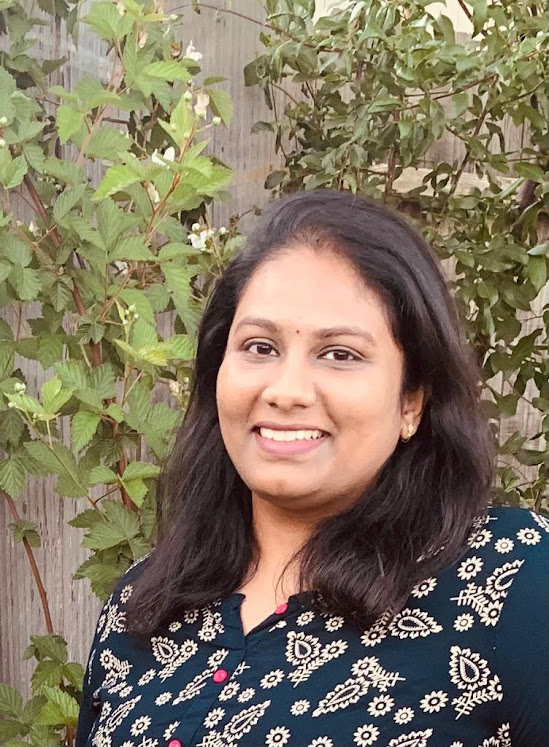Alumni Spotlight: Li Zhu
 |
| Figure 1 Alum Li Zhu works on the front lines of communities to share sustainable practices. |
Written by Arnel Garcesa
The concepts taught and practiced at institutions often make their way into applications that affect our daily lives seen and unseen. More than ever, sustainable principles and theories being promoted should exist beyond the classroom and into reality. PCGS alumni Li Zhu has focused his energy on delivering the allure of sustainability for the benefit of people and their communities.
Li began attending PCGS in the fall of 2016 from his native China. In his home country, Li saw massive capability to tackle its ailments with greater sustainability education. However, the top-down strategy to implement sustainability practice leaves less flexibility for individuals to make large impacts. “Here in the U.S., sustainability is easier to organically grow. Individuals are important in projects. A few people acting in unison can truly improve communities.”
Li soon had his chance to combine his individuality with others. He joined Professor Thomas Culhane’s SOLAR C3ITIES non-profit organization to publicize simple ways to help others locally region and globally. He helped teach how to construct small-scale anaerobic biodigesters for community organizations and posted instructional videos to YouTube exemplifying how others can follow suit. “Instructing how to build biodigesters wholeheartedly exemplifies sustainability. We can take food waste and employ bacteria to create energy in the form of biogas and effluent which enriches soil and helps grow food. Best of all, we don’t need large investments – here in the U.S., we are fortunate we can stop by the home-improvement store. And anyone around the world could build their own.”
 |
| Figure 2 Li, right, pours water to start the first phase of inoculating a biodigester. |
Li’s affinity for helping others is paired with his penchant to be a hands-on practitioner. Li enjoyed the active involvement cultivated by Dr. Culhane’s organization and has replicated it beyond the PCGS community. He served Tampa Bay Farm2School giving lesson plans to local elementary school students to grow the next wave of sustainability leaders. “Many people, myself included, are impacted most when thought is applied into action. With many communities facing hardship, it is important to lead by example to exhibit the efficacy that sustainable living offers. I hope to stress that sustainability does not require fancy materials and provides tremendous opportunity – my hands-on work and presence serves as proof.”
Soon after graduating PCGS, Li was eager to give back to his alma matter working with other USF graduate students to start the USF Food Waste Recovery Project on campus. The team earned a Student Green Energy Fund grant which led to a pilot study to construct six anaerobic biodigesters to measure and improve food waste on campus. “When we attend university, much of what we learn is from or by the book. The biodigesters offer a visceral example of sustainability in action for students of all disciplines. It offers another avenue for learning.” Li diagnosed and helped rectify the operation of the biodigesters. The team recently earned a USF Student Success award.
 |
| Figure 3 Li instructs a student while constructing a biodigester. |
Most recently, Li served as a Sustainability Coordinator for SOMAX Environmental in Pennsylvania. He researched necessary state permits for the first application of hydrothermal carbonization in the U.S. and apply this technology together with indoor hydroponic farming. “I got to work on burgeoning technology – pioneering looming operations for living sustainably. I was a real-life scientist – hypothesizing then testing what conditions can improve agricultural yield. Each component of the food energy water nexus was equally critical in my investigation.” Li’s work fortifies his desire to learn, apply and educate. “I learned the most important thing to improve sustainability is education and policy. They are both intertwined – we need policy which considers long-term impacts but in order for policymakers to do that they need to be educated.”
 |
| Figure 4 Li stands proud after completing a biodigester system at SOLAR C3ITIES headquaters, Glenmoore,PA. |
Li hopes his philosophy offers a prime example in gathering the support needed for the world to tackle the precarious future it will soon face. “The work I have done teaching to construct biodigesters, posting videos and educating others shows everyone that sustainability is not just a theory, it’s reality. It’s not just a concept, it’s life. It’s not just to benefit but for the benefit of everyone.” Indeed, the efforts Li has accomplished enlivens our global village.

